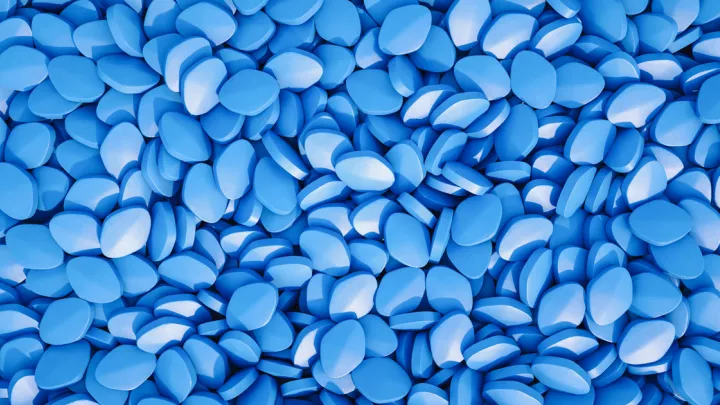Is testosterone therapy for me?

Every time we turn on the radio, there seems to be an ad for testosterone therapy for men. Is it for me, you've probably wondered, and is it safe?
It's true, testosterone production begins to decline in men each year as they reach age 40 and beyond," says Chris Deibert, MD, Nebraska Medicine urologist and men's health specialist. "But only about 5% to 7% of men will experience a drop in levels that is clinically significant and needs treatment."
Testosterone is the main male hormone that maintains:
- Muscle mass and strength
- Fat distribution
- Bone mass,
- Sperm production
- Sex drive and potency
Testosterone deficiency is defined as testosterone blood levels less than 300 nanograms per deciliter (ng/dL).
A decline in hormones can result in symptoms such as:
- Low motivation
- Decreased stamina and energy
- Sexual dysfunction
- Depression
- Hot flashes
- Loss of muscle mass
- Mood swings
Using telemedicine and mail-in lab services
Dr. Deibert says consulting with a licensed provider via telemedicine or getting your levels tested remotely through mail-in lab services is acceptable. "Using remote services is great for increasing ease of access to patients who don't live close by or are unable to come to the office," he says.
Estrogen blockers and hCG
The concern, says Dr. Deibert, is overprescribing testosterone therapies for men that may not actually need therapy or prescribing additional therapies like estrogen blockers or human chorionic gonadotropin (hCG). "At most, just 5% of men who need testosterone therapy, will actually need these additional therapies," Dr. Deibert says.
Estrogen blockers reduce the production of estrogen. While it's normal for estrogen to increase when taking testosterone medications, explains Dr. Deibert, most men won't see an increase in estrogen at high enough levels to develop any new symptoms that warrant estrogen blockers.
"We're also seeing a rise in men receiving hCG," he says. "Injections of hCG are sometimes used as an alternative to testosterone products in men for low testosterone and to help improve fertility."
"hCG has a place in the testosterone treatment world, but it is a very narrow place," Dr. Deibert says, "and should be reserved for those who need to maintain their fertility while taking testosterone."
Over-the-counter testosterone boosters
Dr. Deibert cautions against over-the-counter testosterone boosters, which are not regulated and could cause harmful side effects. But mostly, these boosters just don't improve testosterone.
Be aware of side effects
Men should also be aware that while testosterone therapy can be very effective at improving symptoms, it can also have side effects, and therefore, men should make sure they are being screened by a licensed provider to determine if they are a candidate for therapy, says Dr, Deibert.
Some of these side effects include shrinking of the gonads, altering sexual function and infertility.
Additionally, your provider should thoroughly examine the reason for your low testosterone, notes Dr. Deibert. In some cases, a drop in testosterone may be related to cancer, brain-related diseases, diabetes, obesity and other hormonal abnormalities
Men with treated or untreated prostate cancer should not use testosterone therapy unless they have spoken with their urologist about the risks and benefits. Men with significant heart disease may be at risk for blood clots or additional heart disease if taking testosterone therapy.
"Because we hear about testosterone therapy in the media all the time, it can cause us to become desensitized and take our guard down," says Dr. Deibert. "The important thing to remember is that while the benefits sound amazing, testosterone therapy is not for everyone and requires thorough evaluation and regular monitoring."
To schedule an appointment with one of our specialists, call 800.922.0000.







